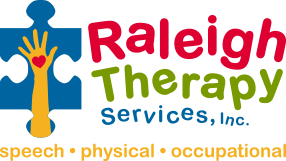What is Autism Spectrum Disorder?
 National Autism Awareness Month is underway, and it’s time to “Light It Up Blue” to increase understanding and acceptance for individuals with autism spectrum disorder (ASD) and provide support to their families.
National Autism Awareness Month is underway, and it’s time to “Light It Up Blue” to increase understanding and acceptance for individuals with autism spectrum disorder (ASD) and provide support to their families.
A neurological and development disorder caused by genetic and environmental factors, autism is characterized by a variety of issues including social and relational challenges, speech and non-verbal communication deficiencies, and repetitive behaviors. Estimating that 1 in 68 children in the U.S. has autism, the Centers for Disease Control and Prevention affirms that:
There is often nothing about how people with ASD look that sets them apart from other people, but people with ASD may communicate, interact, behave, and learn in ways that are different from most other people. The learning, thinking, and problem-solving abilities of people with ASD can range from gifted to severely challenged. Some people with ASD need a lot of help in their daily lives; others need less.
As with most disorders, early diagnosis and intervention are key to helping improve a child’s prognosis. Though it is becoming more common to diagnose autism spectrum disorders earlier and earlier, the most obvious signs and symptoms of autism emerge between 18 months and three years of age.
Signs of Autism
The symptoms and effects of autism may vary widely from child to child. While some children may have only a few, mild symptoms, other children may be faced with more severe challenges. Either way, autism is a lifelong condition which affects people of every race, gender, and background.
While there are many warning signs to watch for as your child develops, the most common autism red flags include: impaired social skills, communication struggles, and behavioral difficulties.
Autism: Social Difficulties
A child struggling with autism spectrum disorder social and relational difficulties may demonstrate the following:
- Appears to be distant, in his or her own world
- Does not frequently respond to his or her name when called
- Lack of warm, joyful facial expressions such as smiles
- Difficulty playing with others or making friends
- Aversion to being cuddled or touched
- Trouble engaging in pretend play or using toys in abstract ways
Autism: Communication Difficulties
A child struggling with autism spectrum disorder verbal and non-verbal communications difficulties may demonstrate the following:
- Avoids eye contact
- Difficulty communicating simple needs and wants
- Offers no spoken words by 16 months
- Echolalia or “parroting” questions and words offered to him or her without comprehension of the communication offered
- Trouble understanding routine directions or simple questions
- Uses few gestures such as pointing, waving or reaching
- Does not understand facial expressions
- Appears sensitive to sounds, smells, and textures
Autism: Behavioral Difficulties
A child struggling with autism spectrum disorder behavioral difficulties may demonstrate the following:
- Self-stimulatory behaviors such as rocking, hand-flapping, moving fingers in front of his or her eyes, spinning, or head banging
- Appears to be inflexible with routine
- Difficulties adapting to changes in routine or environment
- Arranges objects or toys in certain ways such as color, shape, or size
- Seems fixated on certain toys or strange objects including light switches, rubber bands or keys
The Modified Checklist for Autism in Toddlers—Revised with Follow-Up (M-CHAT-R/F™)
The American Academy of Pediatrics recommends that all children receive autism screening between 18 and 24 months of age by using The Modified Checklist for Autism in Toddlers-Revised with Follow-Up (M-CHAT-R/F).
The M-CHAT-R/F is a checklist tool that pediatricians use to identify children who may need a more thorough assessment of possible early signs of autism or developmental delays. If the results of initial screening indicate the need for further evaluation, parents will be directed to contact the local Children’s Developmental Services Agency to begin the process of evaluation and therapy as warranted.
Does My Child Have Autism?
If you are concerned that your child may be exhibiting signs of autism, contact your pediatrician to schedule an appointment to voice your concerns.
Your pediatrician will speak with you about observations and conduct an assessment of your child as well to determine next steps.
Autism Speaks | The World of Autism PSA
Filed under: Advocacy, Autism, Parent Education, Raleigh Therapy Services



